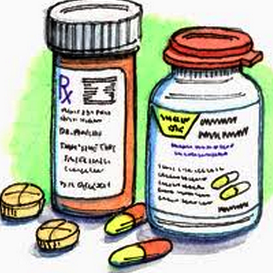Is there risk of ADHD, ASD w/exposure to antipsychotics while pregnant?

 Mental Health | No Increased Risk of ADHD, ASD, Being Small for Gestational Age With Prenatal Exposure to Antipsychotics
Mental Health | No Increased Risk of ADHD, ASD, Being Small for Gestational Age With Prenatal Exposure to Antipsychotics
Investigators found no association between gestational and past maternal exposure to antipsychotics and risk of ADHD, autism spectrum disorder, preterm birth, or being small for gestational age.
Gestational exposure to antipsychotics was not found to be associated with increased risk of attention-deficit/hyperactivity disorder (ADHD), autism spectrum disorder (ASD), or being designated small for gestational age, according to authors of a retrospective cohort study published in JAMA Internal Medicine.
The researchers extracted data from the electronic health records of all residents of public hospitals and ambulatory clinics in Hong Kong for all pregnancies of individuals aged 15 to 50 years old that resulted in live births from January 2001 through December 2015. In the case of ADHD, inclusion was limited to births from January 2001 through December 2015 to ensure at least 6 years of follow-up by the end of the study period (December 31, 2019). For ASD, all children had at least 3 years of follow-up by the end of the study period (December 31, 2018). Pregnancies involving exposure to antidepressants or lithium were excluded.
The researchers analyzed data from 333,749 mother-child pairs for diagnosis of ADHD (n=13,196) and from 411,251 mother-child pairs for diagnosis of ASD (n=8715), preterm birth (less than 37 gestational weeks, n=33,891), and being small for gestational age (birth weight less than 2 standard deviations below the mean for gestational age, n=7009).
Comparing gestationally exposed vs gestationally nonexposed individuals, the propensity score-weighted hazard ratios (wHRs) were 1.16 for ADHD and 1.06 for ASD, and the weighted odds ratios (wORs) were 1.40 for preterm birth and 1.36 for small for gestational age.
The investigators found no association between gestational and past maternal exposure in risk of ADHD (wHR, 0.99), ASD (wHR, 1.10), preterm birth (wOR, 0.93), or being small for gestational age (wOR, 0.21).
The risk of ADHD (wHR, 2.72), preterm birth (wOR, 1.47), or being small for gestational age (wOR, 1.88) was statistically significantly higher in the maternal past exposure group compared with those who were never exposed. The investigators found no evidence to support an increased risk of ASD (wHR, 1.35).
Among mothers who had never used antipsychotics, the risk of ADHD (wHR, 2.08) and ASD (wHR, 1.97) was higher in offspring of mothers with psychiatric disorders than in offspring of those who did not have psychiatric disorders.
 Comparing siblings’ gestational exposure to antipsychotics in circumstances when one sibling was not exposed and the other was exposed in an analysis of 23,308 mothers with 48,275 children in the ADHD cohort and 40,756 mothers with 85,257 infants in the ASD, preterm birth, and small for gestational age cohorts, the researchers did not find a significantly increased risk of diagnosis of ADHD (wHR, 0.41), ASD (wHR, 0.90), preterm birth (wOR, 1.25), or being small for gestational age (wOR, 0.86).
Comparing siblings’ gestational exposure to antipsychotics in circumstances when one sibling was not exposed and the other was exposed in an analysis of 23,308 mothers with 48,275 children in the ADHD cohort and 40,756 mothers with 85,257 infants in the ASD, preterm birth, and small for gestational age cohorts, the researchers did not find a significantly increased risk of diagnosis of ADHD (wHR, 0.41), ASD (wHR, 0.90), preterm birth (wOR, 1.25), or being small for gestational age (wOR, 0.86).“These results suggest that maternal psychiatric disorders are associated with a higher risk of neurodevelopmental disorders rather than gestational exposure to antipsychotic drugs,” the investigators said. “Moreover, gestational exposure to antipsychotic drugs is unlikely to pose a significant risk of preterm birth and small for gestational age in children. Although our estimates had relatively wide intervals, given the benefits of antipsychotic treatment, our findings do not support a recommendation for women to discontinue receipt of their regular antipsychotic treatment during pregnancy.”
Limitations included the inability to confirm adherence to antipsychotic treatment among the mothers, as well as the lack of adequate power for a dose-response analysis of each drug as the number of exposed patients was limited.


